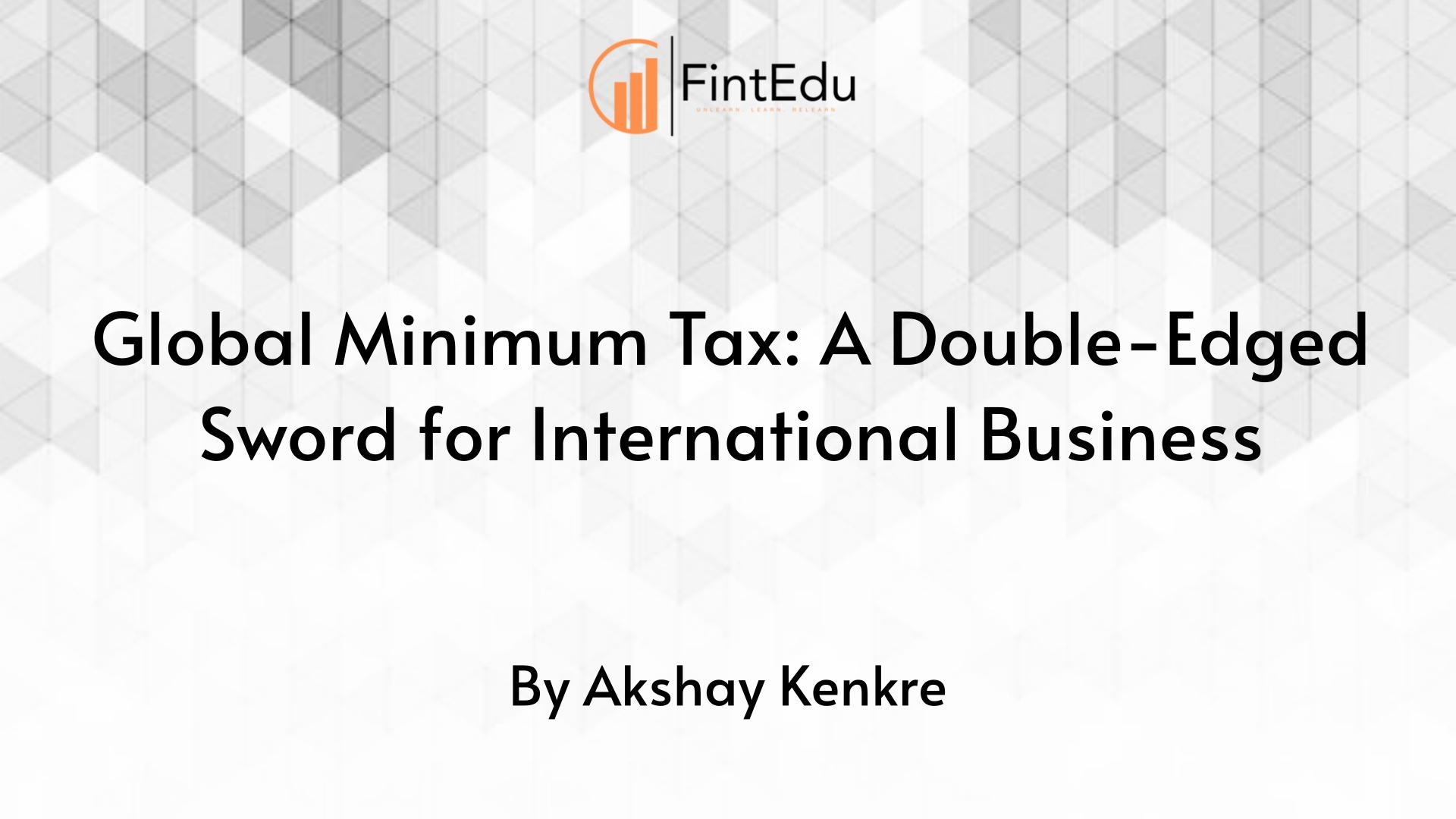LISTEN TO THIS ARTICLE
Global Minimum Tax: Friend or Foe for Businesses?
In the bustling heart of the corporate world, a new player has emerged, promising to reshape the landscape of international business. The Global Minimum Tax, a brainchild of the OECD, is set to level the playing field, but not without stirring the waters of debate. Is this new tax regime a friend or a foe for businesses?
The Genesis of Global Minimum Tax
Imagine a world where companies could choose their tax rates, like selecting toppings on a pizza. For years, multinational corporations have hopped from one country to another, seeking the most favourable tax environments. This phenomenon, known as "tax havens," allowed companies to minimize their tax liabilities, often at the expense of local economies.
In a bid to curb this practice and ensure a fairer distribution of tax revenues, the OECD proposed a minimum tax rate that companies must pay, regardless of where they are headquartered. This move aims to prevent profit shifting and base erosion, ensuring that all companies pay their fair share.
The Good: Leveling the Playing Field
For proponents, the Global Minimum Tax is a beacon of fairness. Small and medium-sized enterprises (SMEs), which often lack the resources to navigate complex international tax systems, stand to benefit. By setting a floor for tax rates, the OECD aims to create a more equitable environment where all businesses, big or small, compete on the same terms.
Moreover, this tax regime promises to generate additional revenue for countries, particularly those struggling to recover from economic downturns. With increased tax income, governments can invest in infrastructure, healthcare, education, and other critical sectors, fostering overall economic growth.
The Bad: Increased Compliance Costs
However, not everyone is convinced of the Global Minimum Tax's virtues. For many businesses, especially large multinationals, the new tax regime means increased compliance costs. Navigating the intricacies of multiple tax jurisdictions is no small feat, and the administrative burden can be overwhelming.
Additionally, some argue that the Global Minimum Tax could stifle innovation. Companies might find themselves with less capital to reinvest in research and development, potentially slowing technological advancements and economic progress.
In addition, the 15% minimum tax rate could become a competitive rate for all the economies to race towards, so in short, the target will move from 0% to 15%, which can negate the actual economic realities.
The Ugly: Potential for New Tax Havens
Interestingly, introducing the Global Minimum Tax might give rise to a new breed of tax havens. Countries may devise creative strategies to attract businesses while adhering to the minimum tax rate. These new havens could offer incentives such as tax credits, grants, or other financial benefits, effectively reducing the tax burden without violating the rules. Countries that were earlier tax havens are developing new tax legislation for the first time to build legal frameworks around tax benefits.
This could lead to a complex web of regulations and incentives, making it even more challenging for businesses to navigate the global tax landscape.
A Balancing Act
The Global Minimum Tax represents a delicate balancing act. On one hand, it aims to create a fairer, more transparent tax system that benefits all players in the global economy. Conversely, it introduces new challenges businesses must overcome to stay compliant and competitive.
As the world watches the rollout of this new tax regime, one thing is certain: the Global Minimum Tax is a game-changer. Whether it will ultimately be a friend or foe to businesses remains to be seen. What is clear, however, is that it has set the stage for a new era in international taxation—one where fairness, innovation, and adaptability will be key to success.
Disclaimer: Content posted is for informational and knowledge sharing purposes only, and is not intended to be a substitute for professional advice related to tax, finance or accounting. The view/interpretation of the publisher is based on the available Law, guidelines and information. Each reader should take due professional care before you act after reading the contents of that article/post. No warranty whatsoever is made that any of the articles are accurate and is not intended to provide, and should not be relied on for tax or accounting advice.
Contributor
Related Posts

@@PLUGINFILE@@/ttsmaker-file-2025-11-3-12-41-50.mp3Listen to this ArticleWhy Compliance Requires Lea...
Read More
@@PLUGINFILE@@/ttsmaker-file-2025-10-30-17-20-25.mp3Listen to this ArticleWhy Ignoring Extra Checks ...
Read More
@@PLUGINFILE@@/ttsmaker-file-2025-10-30-12-29-48.mp3Listen to this ArticleIntroductionCustoms proced...
Read More